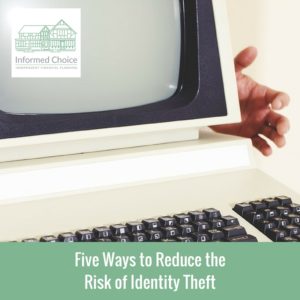 It’s a scary world out there and, sadly, there are plenty of people who want to steal your personal information to commit fraud.
It’s a scary world out there and, sadly, there are plenty of people who want to steal your personal information to commit fraud.
The latest ONS figures show a 3% increase in fraud cases in England and Wales.
These figures cover the period to the end of September 2016 and reveal an estimated 3.6 million incidents of fraud experienced by adults last year.
According to Equifax, who analysed the data, more than half of these incidents of fraud were cyber-related.
Lisa Hardstaff, credit information expert at Equifax, believes the ONS data and a recent report from consumer group Which? underline the importance of individuals taking care of what information they share online.
“The ONS noted, in its latest Crime Survey, that in the past burglary and theft of vehicles were the high volume crimes and fraud was not considered a significant threat when the survey was started 35 years ago.
“But today’s figures demonstrate how crime has changed with fraud now the most commonly experienced offence.
“And the incidence of cyber-related fraud is particularly concerning.
“With the Which? investigation finding that consumer data is being sold quite freely, we believe it’s crucial that individuals think about the security of their personal data, treating it as carefully as they would cash.
“Always be vigilant about who you share your data, with especially third parties. Fraudsters only need a few key pieces of information to steal someone’s identity and open fraudulent accounts in their name.
“Taking steps to protect your personal information and staying safe online can help to prevent fraud. The latest ONS figures bring this message sharply into focus.”
Equifax have published five tips for reducing the risk of identity theft, which can lead to fraud.
1. The first step to reducing the risk of identity theft is to ensure that you don’t give criminals easy access to your information. This means shredding documents that you are throwing away. For example, bank statements, utility bills or credit card statements – anything that could be used as proof of identity or that has information about your accounts.
2. If you lose a payment card or important documentation like a passport, make sure you alert the appropriate authorities as soon as possible. You should also regularly check your financial accounts at least once a month and if you discover any unusual activity report it to your bank or card issuer.
3. If you are the victim of identity fraud, there is a chance that you will be protected by your bank or credit card company, who may help by reimbursing any losses to you. In the most serious fraud cases it can take months or years to undo the damage caused by fraudulent activity. This could have implications for your credit history, which in turn may affect your ability to borrow. By checking your credit report you can identify if any applications for credit have been made in your name.
4. If you use social media, make sure your privacy settings prevent people you don’t know from accessing too much of your personal information. If you use open networks like Twitter, do not give away sensitive details like your address or phone number. A cautious approach is best, especially if someone contacts you asking for information and you don’t know them personally.
5. If you are interested in keeping a keener eye on your personal information, Equifax Identity Watch Pro is available for £9.95 a month and alerts you within 24 hours if we find your personal data on websites used by fraudsters.

